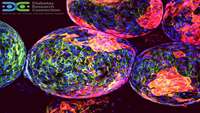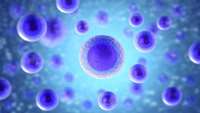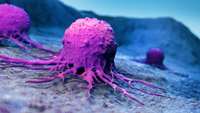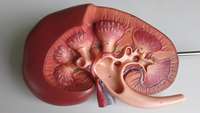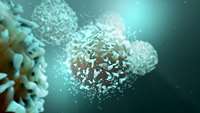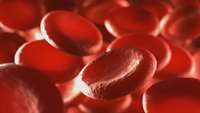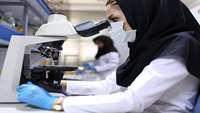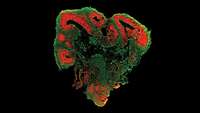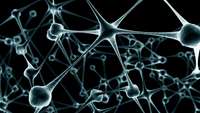Immune-repelling protein prolongs function, survival of human stem-cell-derived beta cells
Encapsulating human stem-cell-derived beta cells in microcapsules made with a protein that repels key immune cells restored glucose metabolism in diabetic mice and protected the cells from immune system attack, preventing the buildup of inflammatory fibrotic tissue that has plagued previous trials of encapsulated beta cells.
Biologists find a way to boost intestinal stem cell populations
Cells that line the intestinal tract are replaced every few days, a high rate of turnover that relies on a healthy population of intestinal stem cells. MIT and University of Tokyo biologists have now found that aging takes a toll on intestinal stem cells and may contribute to increased susceptibility to disorders of the gastrointestinal tract.
Targeting stem-like cells could prevent ovarian cancer recurrence
Ovarian cancer is not the most common form of cancer, but it’s among the deadliest. That’s because about 70 percent of cases recur. A new study by researchers at the University of Pittsburgh, UPMC Hillman Cancer Center, Magee-Womens Research Institute (MWRI) and several other collaborating institutions targets the root of recurrence with new drugs aimed at annihilating stem-like ovarian cancer cells.
Cell therapy could replace need for kidney transplants
Wake Forest Institute for Regenerative Medicine (WFIRM) scientists are working on a promising approach for treatment of chronic kidney disease—regeneration of damaged tissues using therapeutic cells.
Harnessing T-cell stemness could enhance cancer immunotherapy
A new study led by scientists in the Center for Cancer Research (CCR) at the National Cancer Institute (NCI) sheds light on one way tumors may continue to grow despite the presence of cancer-killing immune cells. The findings, published March 29, 2019, in Science, suggest a way to enhance the effectiveness of immunotherapies for cancer treatment. NCI is part of the National Institutes of Health.
Using gene editing, neuroscientists develop a new model for autism
Using the genome-editing system CRISPR, researchers at MIT and in China have engineered macaque monkeys to express a gene mutation linked to autism and other neurodevelopmental disorders in humans.
Study gives new perspective on production of blood cells and immune cells
A healthy adult makes about 2 million blood cells every second, and 99 percent of them are oxygen-carrying red blood cells. The other one percent are platelets and the various white blood cells of the immune system.
Along With Economic and Humanitarian Wars, the US Wages a Scientific War Against Iran
Science diplomacy has long been recognized as one of the most powerful reconciliation tools and has a proven track record in building bridges and helping pave the way for cooperation on broader issues, especially between politically opposed countries.
Researchers create organoid of a brain region to study cognitive disorders
In a lab dish, Yale researchers modeled two brain structures and their interactions to shed light on the origins of neuropsychiatric diseases.
New mechanisms regulating neural stem cells
The research team led by Prof. Dr. Magdalena Götz, director of the Institute for Stem Cell Research (ISF) at Helmholtz Zentrum München and Chair of Physiological Genomics of the LMU Biomedical Center, wanted to identify the factors that regulate the maintenance or differentiation of neural stem cells.


